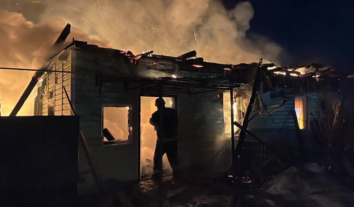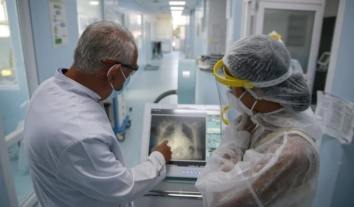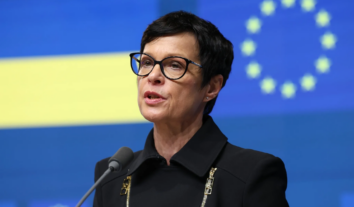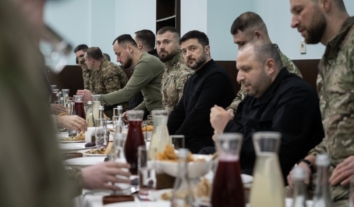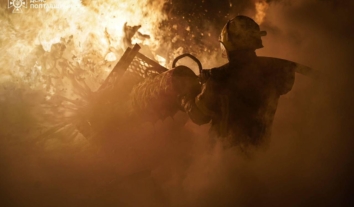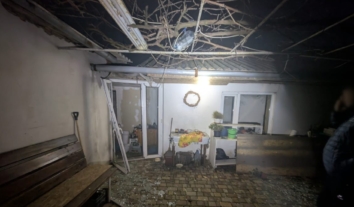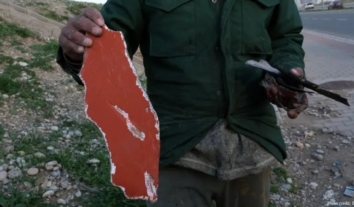Human Rights Advocate: The Case of the Heavenly Hundred should be Brought to the Hague
There are not yet any results in the investigation of the deaths of the “Heavenly Hundred” during the Maidan protests. The only hope is the International Criminal Court in The Hague, which is now in possession of an evidence database collected by activists and materials from the Prosecutor General’s Office.
This was said on the air of Hromadske Radio by Tetiana Pechonchyk, head of the Human Rights Information Center.
She noted that this year could be called “the year of impunity”, because until now the people who committed crimes have not yet been held responsible, except the case of the Cossack Mikhailo Gavrilyuk.
This, according to her, is due to the lack of coordination between the Ministry of Interior, SBU, and the Prosecutor General’s Office, the inability to retain key evidence, and the failure by officials involved in the events to cooperate with the investigation.
There are now 77 cases being processed by the Prosecutor General Office where there is a proven link between the deaths and the events on the Maidan, but that is only in Kiev. Deaths in the Khmelnytskyi, Cherkasy, Zaporizhya regions are not included in this block of cases. Pechonchyk noted that she recently was in the Prosecutor’s Office with the wife of someone who was killed during Euromaidan. She saw for herself that the investigators of the Prosecutor General are working almost around the clock, but without any results yet.
“There are cases when people were killed in other cities or when the cause of death may not have been immediate result of a criminal action, but could have a connection to those events. For example, when people were sprayed by water cannons out in the cold and later died of pneumonia. But, these cases do not go into the general investigation and it seems to me that even less is done with them than in the main investigation led by the Prosecutor General’s Office,” noted Pechonchyk.
During Maidan, activists joined Euromaidan SOS to provide medical, legal, psychological, and other assistance to those hurt during the protests. But, one of their main initiatives was to document the crimes of the regime, says Pechonchyk. Activists have built a large database of photos, videos, testimonials, medical records which was updated with new data for over a year, including from the relatives of the victims. Many of them carried out their own investigations which were more effective than those held by the Prosecutor General’s Office.
On January 5th, activists handed the accumulated database to the International Criminal Court in The Hague, which began a preliminary study of the events of Maidan. The Prosecutor General’s Office also sent their own materials to the ICC. As a first step, said Pechonchyk, the court must determine whether these events constitute a crime against humanity. If yes, then prosecutors will come to Ukraine to conduct an independent investigation. She notes that the ICC is the last hope, but such investigations usually last for years, so quick results shouldn’t be expected.
Pechonchyk notes that some witnesses confessed that they did not trust the Prosecutor’s office and refused to provide evidence to the investigation. For example, those who provided medical care to wounded protesters. Underground hospitals often did not meet official standards and the witnesses were afraid of being prosecuted.
Activists’ abilities to conduct the investigation have been limited and it is sometimes impossible to say for sure if a case is connected to the protests. Pechonchyk tells the story of a father who contacted activists in early March: during Maidan his son went out with friends in Irpin to protect the city from titushky (civilian thugs hired by the regime), and in the morning his body was found on the railway tracks. The prosecutor’s office wrote that he was hit by a train, but in reality there is evidence that he was beaten to death by titushky and thrown on the railways.
“It’s impossible to say for certain that this case is connected with the protests, but there is a possibility. Unfortunately, we have no procedural ways to enter into the matter and investigate it,” says Pechonchyk.
According to her, not all of those who suffered during the protests and received treatment at their own expense obtained compensation. After all, you need to prove that the injury was precisely because of the events on the Maidan, and not everyone has such evidence.
She also noted that there are a few people on the presidential list in commemoration of the anniversary of the events who are completely unrelated to Maidan. This can be considered an insult to the memory of those who died a heroic death.


